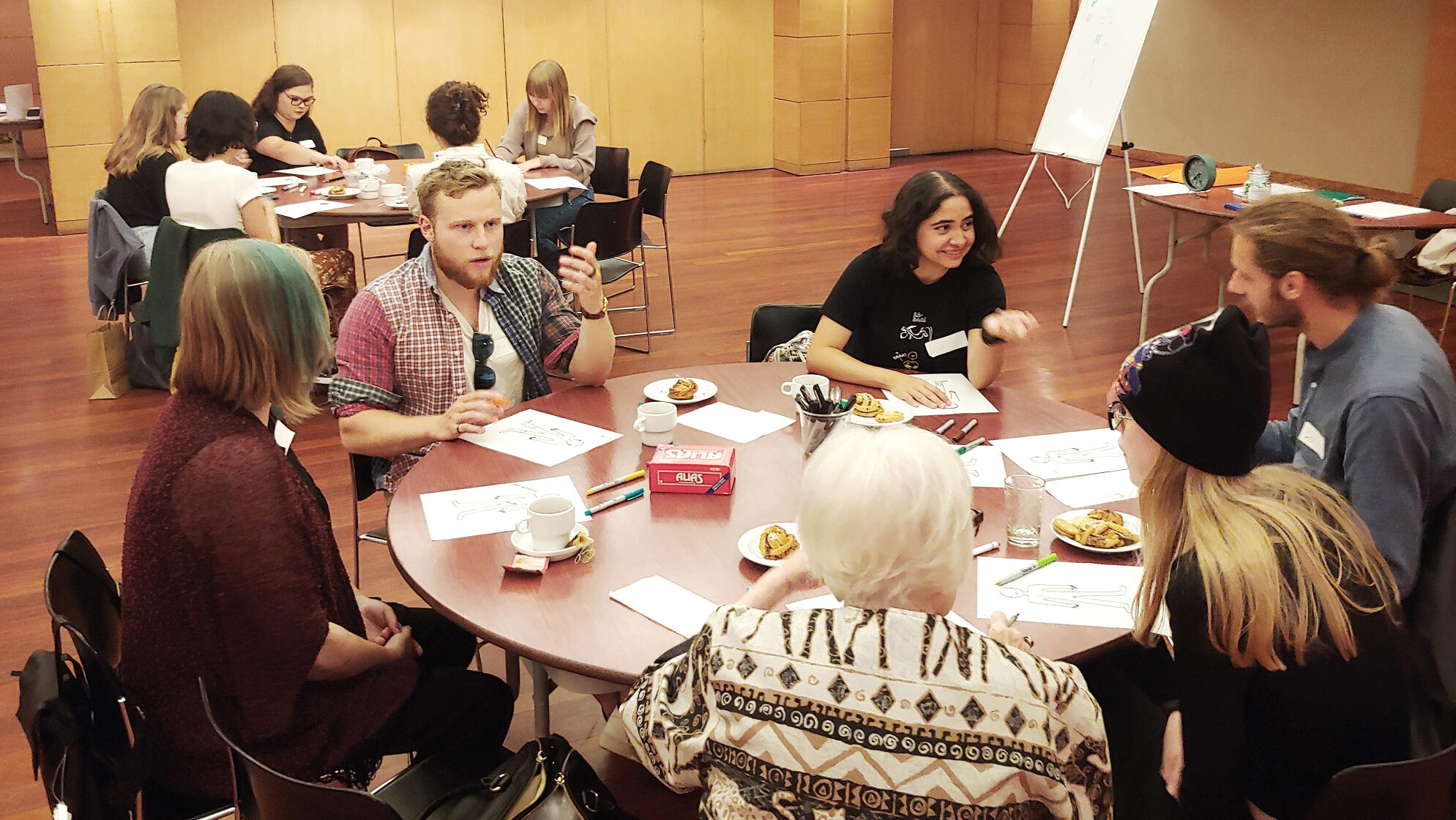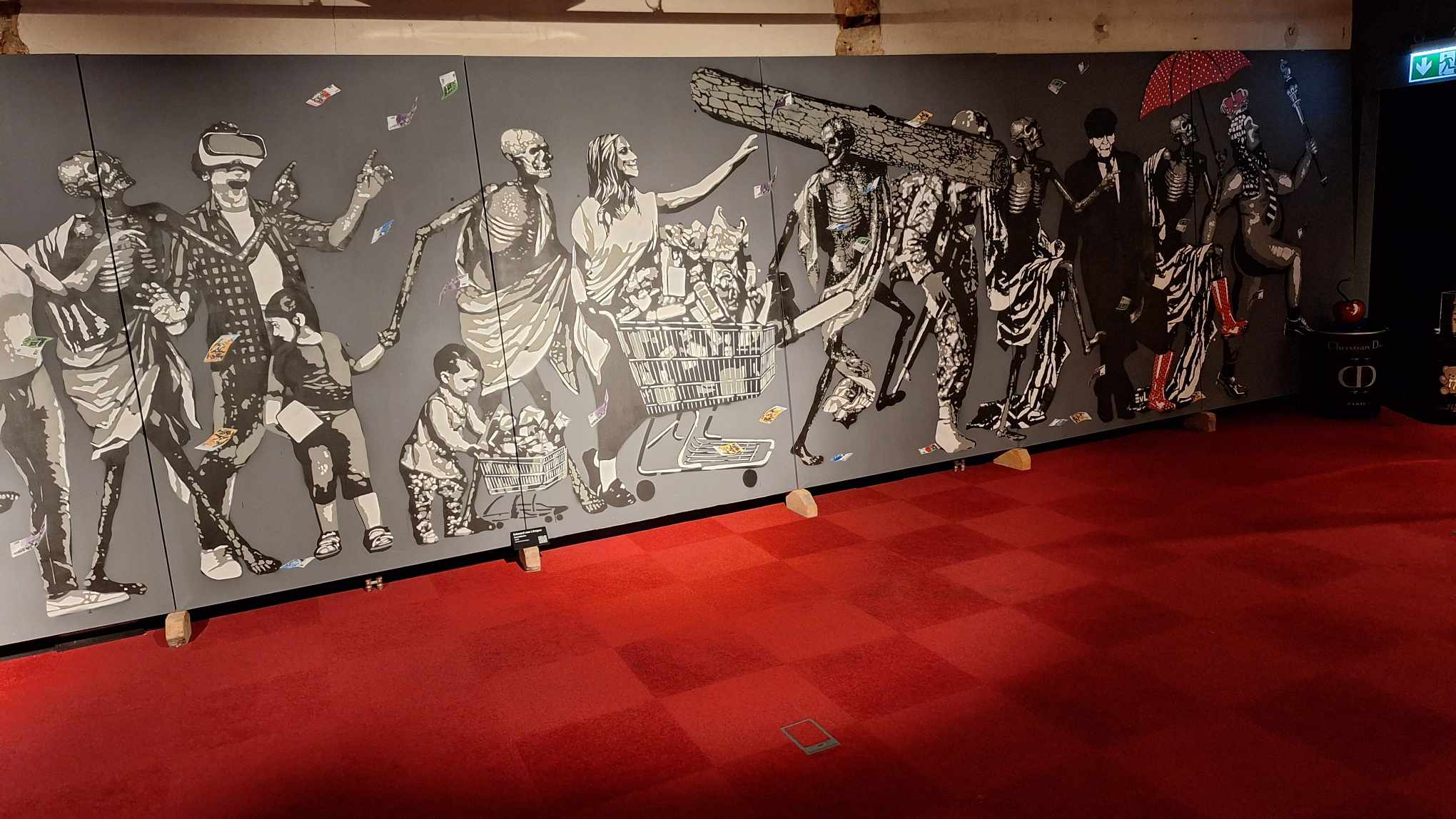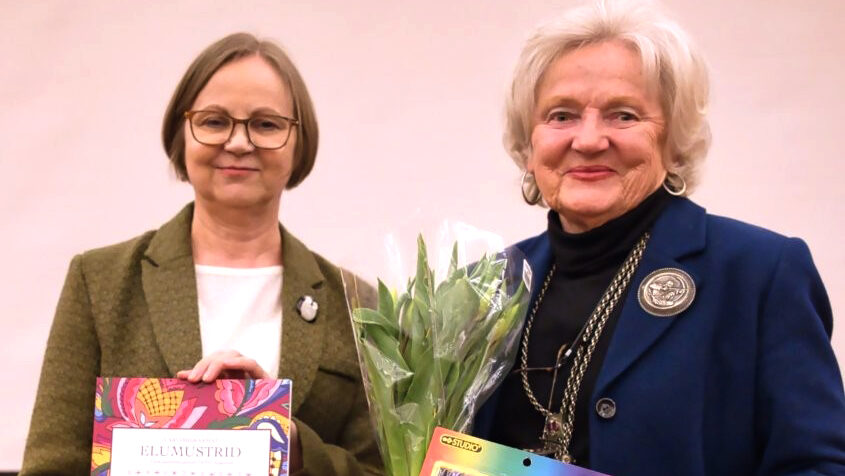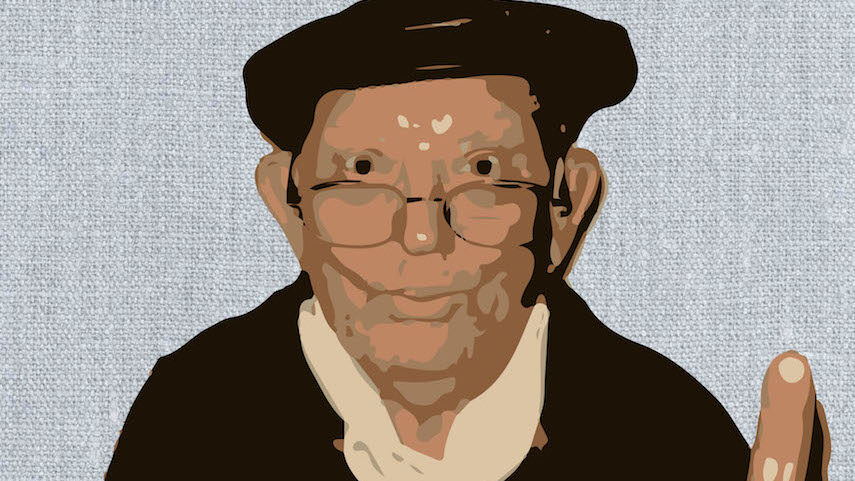While the café's main target demographics are beginner and intermediate-level speakers, opportunities to teach and guide others also benefited those at a more advanced level. There’s room for everyone, no matter what your abilities are!
Traditional classroom settings, emphasizing performance, may not always result in genuine learning and may not be conducive to developing practical, everyday conversational skills for everyone. To grasp a language's spoken aspect, it's highly beneficial to fully immerse yourself in conversation with all its subtleties and complexities.
“It's low pressure and definitely good for people to get out there and practice, which is important if you don't want to forget what you know.”
(Maiki Müürsepp)
The café works because it understands this. The organizer of the event, Piret Noorhani (with help from Ene Timmusk), hosted a group of around 10 participants, all ranging in speaking abilities—some had little to no working knowledge of Estonian while others were completely fluent. Rather than focusing on writing exercises, reading, or grammar studies, participants were encouraged to chat with each other. To facilitate more conversation, Piret guided the group with speaking prompts. Activities included one-on-one interviews where participants got to know each other and casual group discussions. “It's low pressure and definitely good for people to get out there and practice, which is important if you don't want to forget what you know,” said Maiki Müürsepp, one of the participants.
With the shared goal of practicing their Estonian in a judgment-free environment, attendees developed self-assurance and the courage to make mistakes in using the language.
Making mistakes is how we learn—but making mistakes in a group setting is uncomfortable and challenging. The café moved past this by creating a respectful, inclusive environment where everyone was encouraged to speak. With the shared goal of practicing their Estonian in a judgment-free environment, attendees developed self-assurance and the courage to make mistakes in using the language.
“For language learning, it's important to have stress-free environments where you don't feel pressure to speak perfectly or know everything,” said participant Will Morley. He continued, “The exercises were great for facilitating conversation and getting to know people. It was great all around.”
Those with more advanced skills who attended the event had a chance to improve their skills by teaching others what they know. Those fluent in Estonian guided participants with a more limited skill set by explaining basic vocabulary and sentence structure. “When we were having discussions, and people were asking me questions about the correct form, I found myself really having to think about the right answer,” said Müürsepp. Another participant, Bronwyn Pajo, agreed: “Even if you consider yourself already fluent or very good at Estonian, it's a good opportunity to learn from helping others, since teaching is always a good way to learn yourself.”
Growing up, many of those involved in the community were either fluent or at least had some working knowledge of Estonian. Yet, when they graduate and move on from various programs, from Estonian school to camp, many lose their speaking skills.
A common problem shared by many young adults in the community is the lack of spaces they encounter where they can practice their Estonian. Growing up, many of those involved in the community were either fluent or at least had some working knowledge of Estonian. Yet, when they graduate and move on from various programs, from Estonian school to camp, many lose their speaking skills. “I probably have a stronger grasp [of] Estonian,” said Müürsepp. “At the same time, when you go some time without using it, you start to lose it. When I came to Toronto, I noticed that, over time, my language [skills weren’t] as strong as [they] used to be.”
No matter where your abilities lie (or used to lie), the language café provides a space to revive and hone your Estonian.
Keelekohvik will also take place at Tartu College on Wednesday, October 25th, at 7:00 PM; Wednesday, November 8th, at 7:00 PM; and Wednesday, November 22nd, at 7:00 PM. It’s free to attend, but donations are always welcome!
This article was written by Natalie Jenkins as part of the Local Journalism Initiative.




